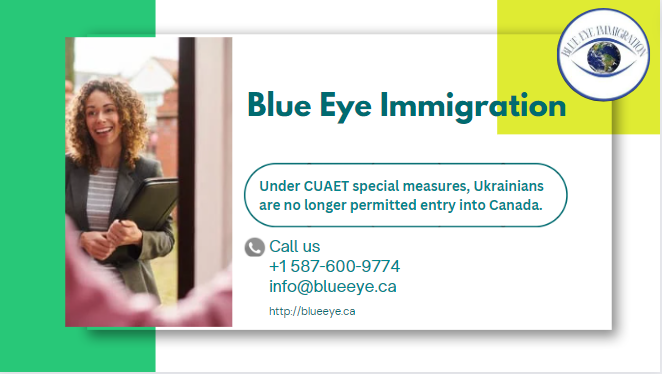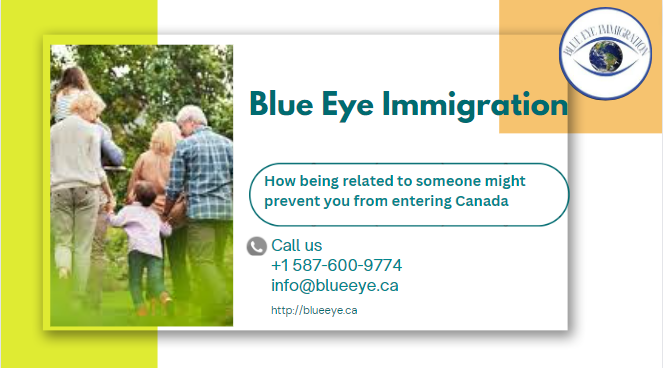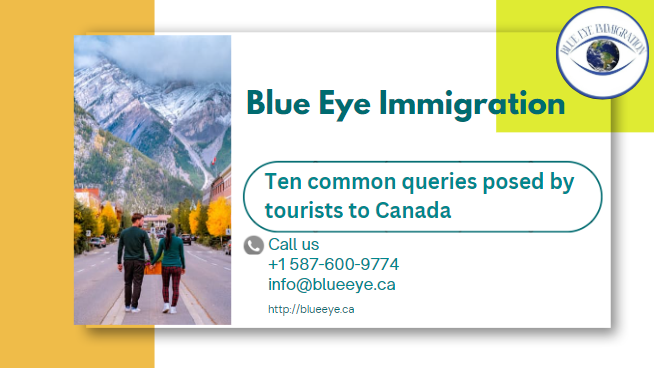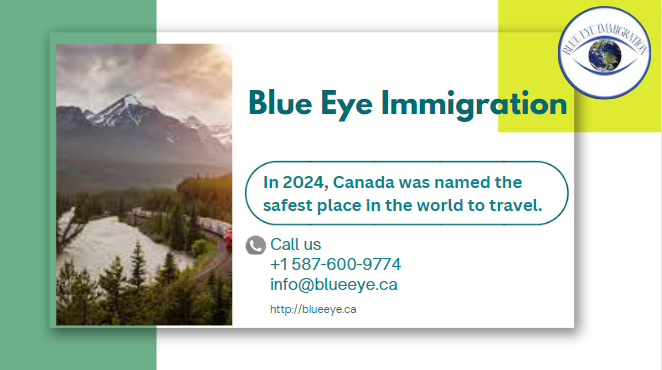Three important deadlines for the Canada-Ukraine Authorization for Emergency Travel (CUAET) program are approaching today, March 31, 2024.
The program itself has two deadlines, and “post-CUAET measures” are the subject of the third deadline, according to Immigration, Refugees and Citizenship Canada (IRCC).
Dates 1 and 2: CUAET initiative
Under the IRCC’s CUAET special measures, this is the last day that holders of qualifying visas can enter Canada. Foreign nationals holding a visitor visa under CUAET are still permitted to enter Canada and are qualified for the range of services provided by this program, according to the IRCC.
“960,000 Ukrainians have been approved to join [CUAET], but, as of the end of February, only 248,726 had arrived in Canada,” according to IRCC numbers that were reported by the Globe and Mail last week.
Note: In order to enter Canada after today, or on April 1, 2024, and beyond, individuals who received a visa through CUAET will need to fulfill the country’s standard admission standards. Additionally, they will not be qualified to receive any IRCC help relating to CUAET.
Furthermore, individuals in Canada covered by CUAET have until today to submit an application for an extension or to modify their status as temporary residents under this program. The IRCC emphasizes that today will also mark the end of the waiver of application expenses associated with these procedures.
Third deadline: Post-CUAET actions
Today is also the last day for individuals already in Canada under CUAET to apply for an open work permit, a study permit, or to extend their stay for a maximum of three years under the IRCC’s post-CUAET provisions.
CUAET: What is it?
“Ukrainians and their family members free, extended temporary status… in Canada until it is safe for them to return home,” is the stated goal of the CUAET program.
Ukrainian nationals and their family members (regardless of nationality) were granted a specific route to gaining temporary resident status in Canada for a maximum of three years under this special immigration provision.
Important: On July 15, 2023, the application deadline for the IRCC’s CUAET program was reached.
In addition to not having to pay the application costs for this tourist visa, qualified foreign nationals could simultaneously apply for an open work permit and obtain temporary residence through CUAET. Additionally, the applicant would not be charged for the open work permit application.
More: To learn more about CUAET, click this link.
Additional programs to assist Ukrainian nationals relocating to Canada
For Ukrainians with Canadian family links, the IRCC developed two specific avenues for permanent residence in addition to the temporary alternatives offered under CUAET. Beginning on October 23, 2023, two additional immigration options—family sponsorship streams—were available.
In the two cases listed below, the Ukrainian applicant’s Canadian family member must be a citizen or permanent resident of Canada, be at least eighteen years old, be presently residing in Canada, and not have received PR status through this exceptional measure themselves.
Stream 1
The first stream is reserved for Ukrainian nationals who have family members who are citizens or permanent residents of Canada. The Ukrainian applicant specifically needs to be connected to the Canadian citizen or PR in one of the following ways:
- a common-law partner or spouse
- A young person
- a granddaughter
- A guardian
- a grandmother
- A half-sibling or sibling
Note: For more information about the initial permanent residency stream, including a comprehensive list of qualifying requirements, visit this webpage.
Stream 2
Applicants “who are the spouse or common-law partner of a Ukrainian national who has family in Canada” are the focus of the IRCC’s second stream for permanent residence for Ukrainian nationals. The following are among the requirements to be eligible for this second pathway:
- The applicant needs to be a Ukrainian national’s spouse or common-law partner.
- The applicant is a relative of a person who is a citizen or permanent resident of Canada, such as their spouse, common-law partner, child, grandchild, parent, grandparent, sibling, or half-sibling.
- When the applicant files their application and is approved for permanent residency, they are both in Canada.
- After leaving Ukraine, the applicant must not have gotten married again or entered into a new common-law partnership.
Note: The full eligibility requirements and information for Ukrainians wishing to obtain Canadian permanent residence through this second channel are available on this webpage.



